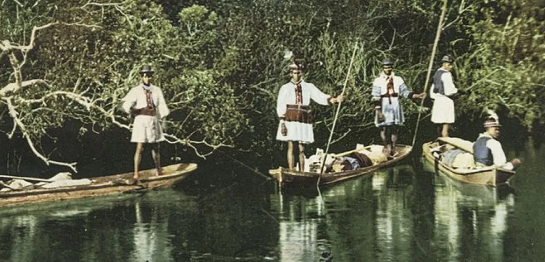
- Details
- By Levi Rickert
The new standards approved by the Florida Board of Education on race should be taught in the state’s public schools has received criticism from educators and civil rights groups, including the National Congress of American Indians (NCAI).
Florida Gov. Ron DeSantis’s “anti-woke” rhetoric is being blamed for the new standards approved on Wednesday by the state board of education.. Under DeSantis, the Florida legislature passed legislation that bars instruction in public schools that suggests anyone is privileged or oppressed based on their race or skin color.
One standard approved on Wednesday includes “how slaves developed skills which, in some instances, could be applied for their personal benefit” has been criticized across the country.
On Friday, the NCAI released a statement, authored by the organization’s treasurer Shannon Hosley (president of the Stockbridge- Munsee Band of Mohican Indians), that rebuked the new standards. The statement reads:
“Native people are far too familiar with the devastating consequences caused by education systems that have at various times ignored, fabricated, and misrepresented the often painful histories of our people. And as the state of Florida threatens to dangerously alter the history of enslaved people and teach it to generations of future leaders, the National Congress of American Indians stands united with our diverse partners, both Native and non-Native, in shaping a promising future. We firmly believe that it is our responsibility to preserve our unique histories and not allow outsiders to rewrite them on our behalf. Together, we will champion our own history and ensure its accuracy and authenticity."
The new standards provide only cursory references on how Native American history should be taught. References to Native Americans are found in the social studies standards that are outlined per grade level (K-12). Native Americans are not even mentioned until Grade 2.
It reads: "Recognize that Native Americans were the first inhabitants in North America."
The Florida Education Association, the state's teachers union, called the new standards "a big step backward for a state."
“How can our students ever be equipped for the future if they don’t have a full, honest picture of where we’ve come from? Florida’s students deserve a world-class education that equips them to be successful adults who can help heal our nation’s divisions rather than deepen them,” Andrew Spar, the association’s president, said in a statement.
“Gov. DeSantis is pursuing a political agenda guaranteed to set good people against one another, and in the process he’s cheating our kids. They deserve the full truth of American history, the good and the bad,” Spar added.
More Stories Like This
Hanging a Red Dress for Christmas: MMIP, Native Higher Education, and Hope for a Better New YearNative Students Can Win $5,000 Scholarship, International Distribution in Pendleton Design Contest
American Indian College Fund Raises Alarm Over Plan to Shift Native Programs Away From the Dept. of Education
MacKenzie Scott Foundation Gives $5 Million Contribution to Little Priest Tribal College
Tribal Leaders Push Back on Dismantling of U.S. Department of Education
Help us defend tribal sovereignty.
At Native News Online, our mission is rooted in telling the stories that strengthen sovereignty and uplift Indigenous voices — not just at year’s end, but every single day.
Because of your generosity last year, we were able to keep our reporters on the ground in tribal communities, at national gatherings and in the halls of Congress — covering the issues that matter most to Indian Country: sovereignty, culture, education, health and economic opportunity.
That support sustained us through a tough year in 2025. Now, as we look to the year ahead, we need your help right now to ensure warrior journalism remains strong — reporting that defends tribal sovereignty, amplifies Native truth, and holds power accountable.
 The stakes couldn't be higher. Your support keeps Native voices heard, Native stories told and Native sovereignty defended.
The stakes couldn't be higher. Your support keeps Native voices heard, Native stories told and Native sovereignty defended.
Stand with Warrior Journalism today.
Levi Rickert (Potawatomi), Editor & Publisher


